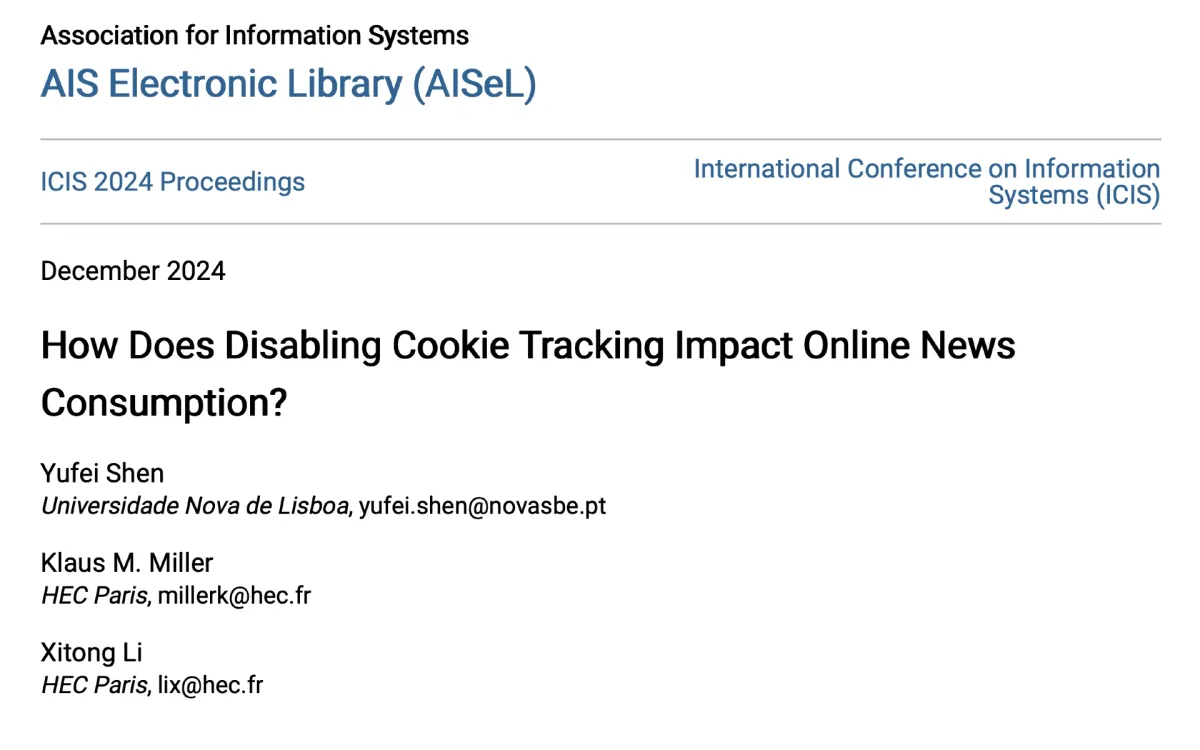
A study by researchers from HEC Paris and Universidade Nova de Lisboa reveals that users who disable cookie tracking on news websites increase their article consumption by 54.3% and diversify their reading habits by 39.7%. The research, accepted at the 2024 International Conference on Information Systems (ICIS), challenges conventional wisdom about online privacy settings and user engagement.
According to Klaus Miller, Professor at HEC Paris and one of the study's authors, the findings demonstrate that enhanced privacy control drives greater news consumption. The research analyzed individual-week level panel data from a major European news website, tracking the behavior of over 5,800 users across 16 weeks.
Key findings from the study show that users who opted out of cookie tracking:
- Spent 74 more seconds per visit on the news site
- Made 0.9 more visits per week
- Viewed 6.8 additional pages
- Showed particular interest in hard news categories, especially political and economic content
Privacy Control Enhances User Engagement
The research reveals that the positive effects of disabling tracking persist for over three months after users opt out. According to the study's authors, Yufei Shen, Klaus Miller, and Xitong Li, these effects were most pronounced when personalized recommendations were absent, suggesting that perceived privacy control is a primary driver of increased engagement.
Impact on News Categories
The study found that the increase in article views was most significant in "hard" news categories. According to the researchers, political news saw the highest increase, followed by economic coverage, demonstrating that privacy-conscious readers engage more deeply with substantive content.
Personalization Trade-offs
The research identified an important trade-off: while disabling tracking increased overall engagement, it reduced the effectiveness of personalized content recommendations. The study found that after the news site introduced personalized recommendations, the positive effects of disabled tracking decreased, though they remained significantly positive.
Key Facts
- Study period: 16 weeks
- Sample size: 5,832 unique users
- Increase in articles read: 54.3%
- Increase in category diversity: 39.7%
- Extended visit duration: 74 additional seconds per visit
- Impact duration: Over three months
- Research acceptance: ICIS 2024
- Participating institutions: HEC Paris, Universidade Nova de Lisboa
- Primary researchers: Yufei Shen, Klaus Miller, Xitong Li

